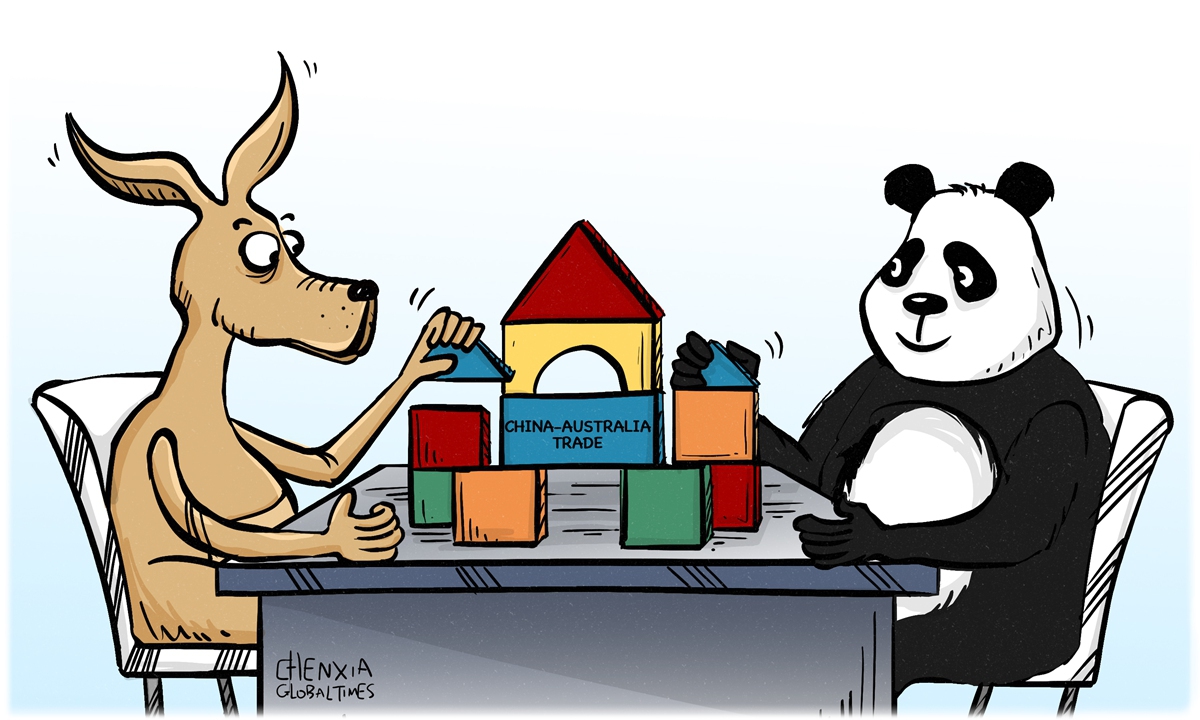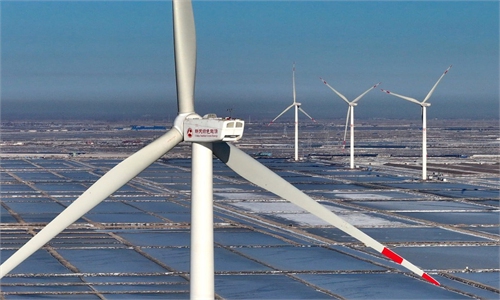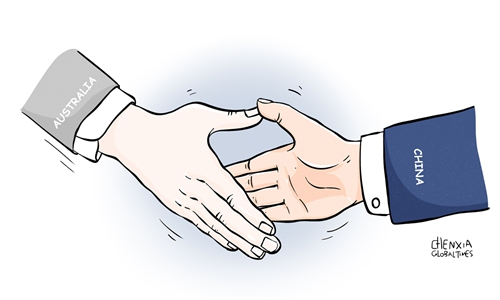
Illustration: Chen Xia/Global Times
While it seems that the continuous improvement of China-Australia relations these days has created more opportunities and possibilities for the settlement of their trade disputes, accumulated problems in economic and trade areas between the two countries still require the joint efforts from both sides at various levels.Australia has decided not to continue imposing anti-dumping measures against wind towers from China when the current measures expire on April 16, 2024, read a notice recently issued by the country's Anti-Dumping Commission, according to the China Trade Remedies Information website.
The decision is undoubtedly a positive signal, indicating that the Australian government has begun to take a more pragmatic approach toward trade issues with China.
At a time when Beijing and Canberra are trying to inject positive energy into stabilizing bilateral economic and trade relations, this shift in attitude is of great significance for both countries to resolve trade disputes through dialogue and consultation.
As a type of clean energy equipment, wind towers are in growing demand globally. As the country with the world's largest installed wind power capacity, China has mature technology and industrial chain advantages in wind power. In this sense, Australia's decision not to continue anti-dumping measures against Chinese wind towers will help promote clean energy cooperation.
Nevertheless, clean energy is only one aspect of bilateral trade cooperation. It is important to note that there are still some accumulated problems in trade between China and Australia, especially when it comes to anti-dumping measures against Chinese goods.
While Australia formally granted China market economy status, its Anti-Dumping Commission has continued to treat China as a non-market economy, making use of a WTO exemption rule called "particular market situation," where a product is held to be distorted by regulatory or other types of government intervention.
For instance, during its anti-dumping investigation against Chinese steel products like rebar and wire rods, Australia didn't use the Chinese market prices of the products in question in calculating the costs of the products but instead used surrogate prices as the benchmark for calculating the cost of sales, on the grounds that China's industry has a "particular market situation."
An anti-dumping action against a market economy could proceed only if it were shown that goods were being sold for less in an export market than their cost in the country of origin. However, Australia's use of surrogate prices often led to higher price levels for Chinese products determined by Australia, compared with their actual market prices in China.
Since the implementation of anti-dumping measures often involves complicated political and legal issues, such an approach of treating China as a non-market economy in anti-dumping investigations meant unfair treatment for Chinese companies and made it hard for those companies to appeal by mounting anti-dumping lawsuits.
Addressing these long-standing problems requires not only adjustments made by the Australian government to its trade policy, but also strengthened communication and cooperation between the two countries in relation to economic and trade practices.
It is sincerely hoped that in the context of improved bilateral relations, Australia will return to the basic principle of treating China as a market economy so as to ensure fair treatment for Chinese companies.
The development of China-Australia economic and trade cooperation is full of opportunities and challenges. While there are some positive signals, to achieve long-term stable development, the two sides still need to resolve trade disputes through dialogue and consultation within a legal framework.
This will reduce the potential escalation of trade friction and provide a stable and predictable trade environment for companies from both countries.



